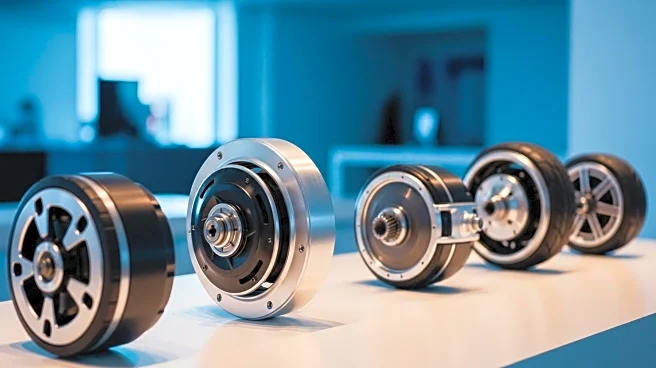What's Happening?
Protean Electric, a British company, is set to transform the automotive industry with its in-wheel motor technology for electric vehicles (EVs). By 2026, Protean plans to begin production of these motors, which promise to enhance vehicle performance and potentially reduce costs. The technology involves embedding a motor directly in each wheel, eliminating traditional drivetrain components like transmission shafts and gears. This innovation aims to simplify vehicle mechanics, improve driving dynamics, and offer advantages in weight distribution and space for other components, such as batteries. The independent control of each wheel could significantly enhance traction and stability, especially in challenging driving conditions.
Why It's Important?
The introduction of in-wheel motors could lead to more affordable electric vehicles by reducing production costs. By minimizing the number of transmission components and complex mechanical systems, manufacturers could streamline production processes, potentially lowering the overall cost of EVs. This technology could accelerate the transition to sustainable transportation by making electric vehicles more accessible to a broader audience. However, technical challenges such as managing unsprung weight and ensuring component durability remain. Protean Electric is optimistic about the economic feasibility, claiming that the savings from eliminating transmission parts could offset additional costs associated with durability.
What's Next?
Protean Electric is targeting 2026 to bring its in-wheel motors to market, with plans to deliver motors capable of producing 220 kW and 2,500 Nm of torque. An unnamed European automaker is expected to adopt this technology for a high-performance electric sports car. As the technology matures, it could extend beyond performance vehicles to more mainstream applications. The success of in-wheel motors could redefine electric vehicle design and affordability, potentially driving down costs and making EVs more accessible to consumers.









